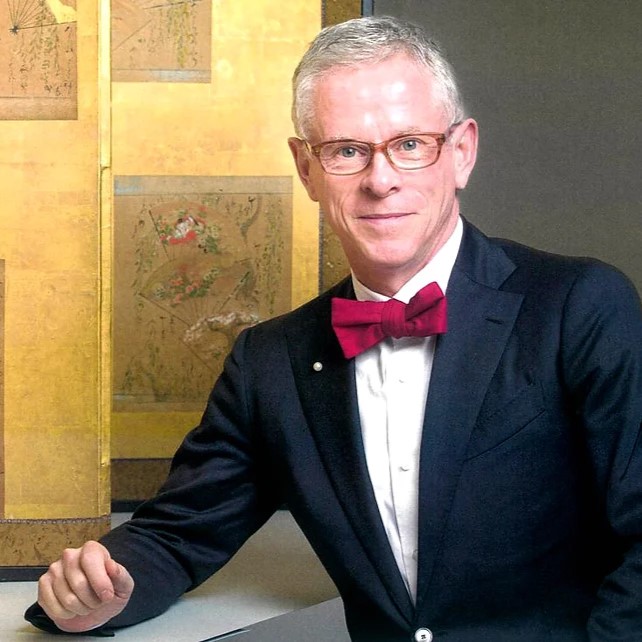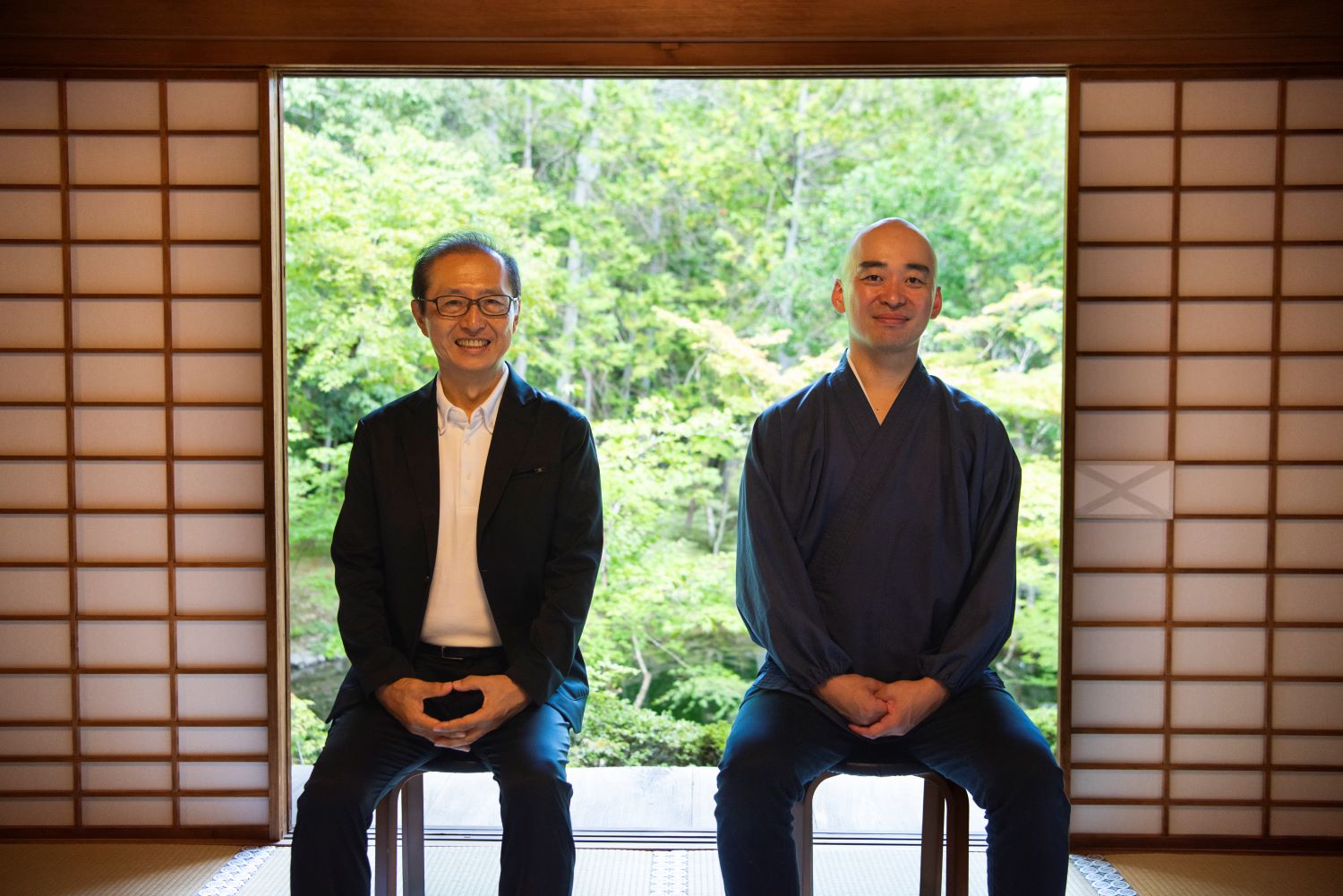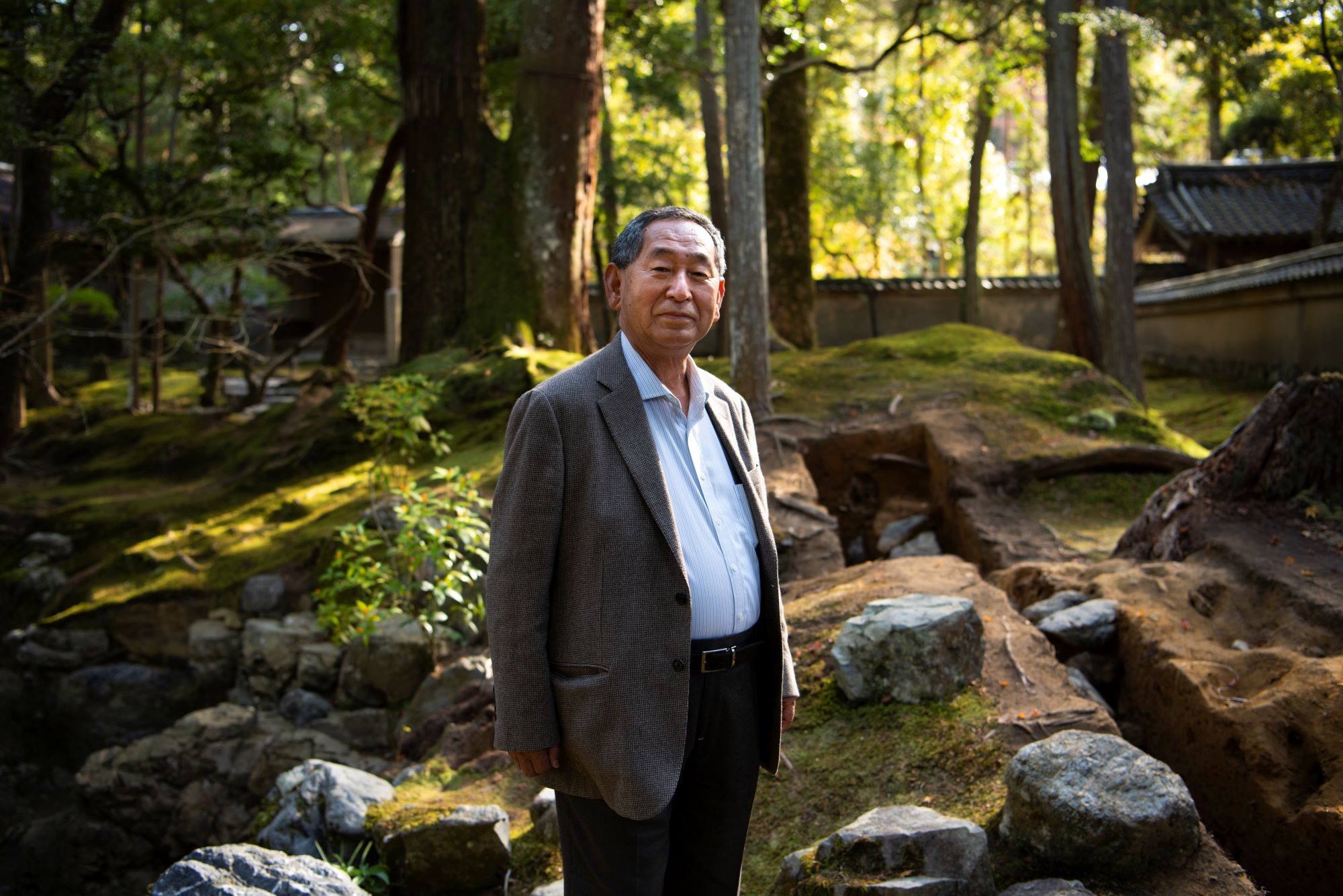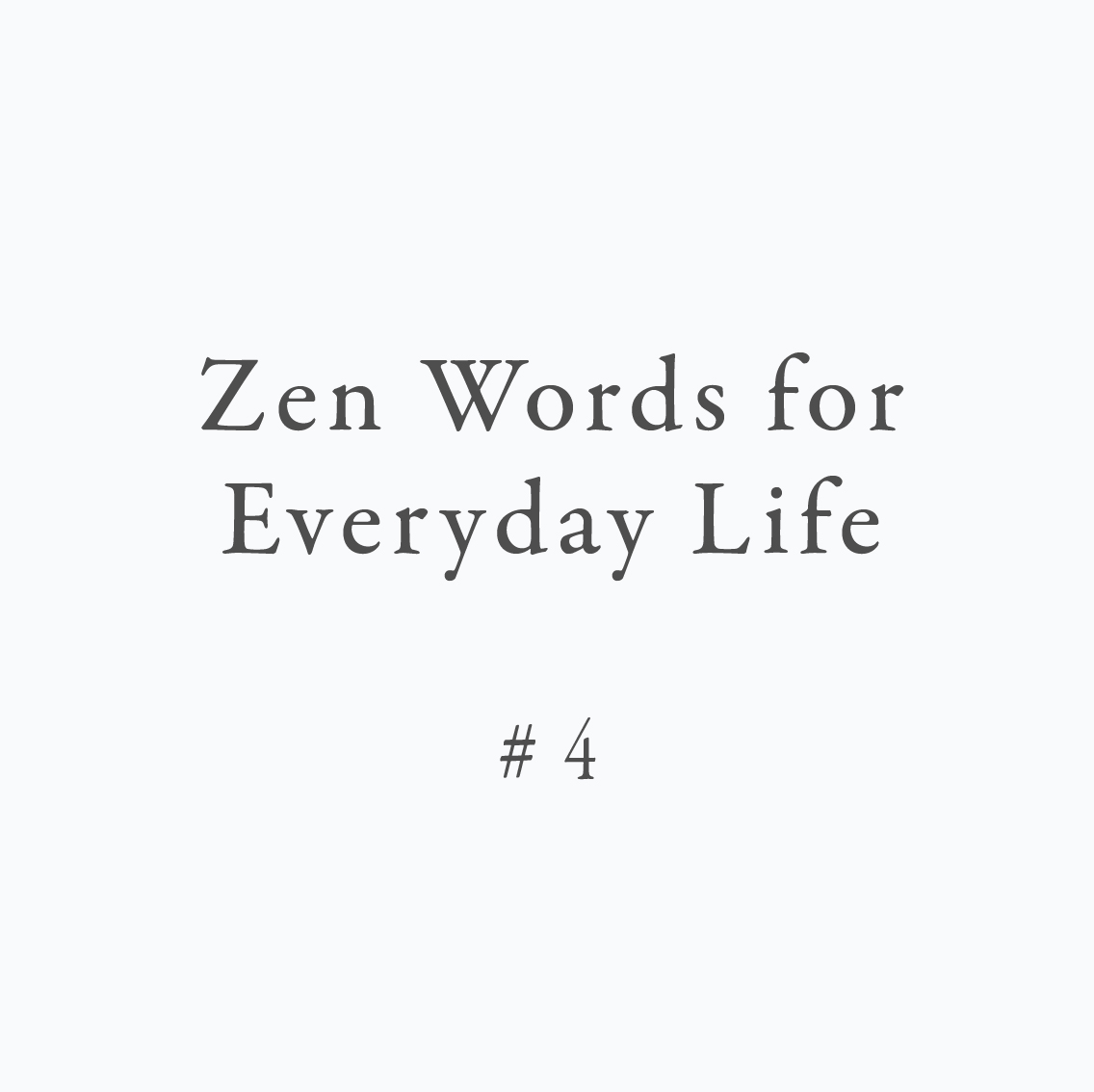2024.11.20
Winds of Gold—One Hundred Views of Saihoji Vol. 7
Peter MacMillan / a translator, scholar, poet
In this series of essays on Saihoji the renowned translator of Japanese poetry and poet Peter MacMillan records his impressions of and reflections on his visits to the garden throughout the four seasons. We hope that through these essays you the readers and fans of Saihoji can feel as if you are also present in the magical garden even when you cannot visit us.
Seeing Saihoji in the Eye of the Heart
The deadline for this month’s Saihoji essay has already passed, but I have not yet taken up my pen. I begin now and see how far I get with it. I have always based each essay on a visit to the temple, but last month I was not able to arrange a visit, so I have a kind of writer’s block.
When I go to Saihoji each time, I feel like a man renewing his vows to a beloved, as Saihoji has become a kind of spiritual barometer to me. Each visit is like the joint (fushi) on a bamboo or on a piece of reed grass (ashi) and helps me record the limitations of my spiritual journey. It gives me the space to address my own failings and shortcomings and to look for ways to overcome them in a green moss silence.
This is the first time to write an essay about Saihoji without a fresh image of the garden in my mind. It means that instead of looking at the garden directly, I must look at it with the eye of my heart. But the idea of looking at things with the eye of the heart instead of the real thing is at the very heart of Japanese culture. In Essays in Idleness —the beautiful English translation of Yoshida Kenko’s Tsurezuregusa by Donald Keene, —Kenko writes that instead of looking at the moon, let’s imagine it from our room:
Are we to look at cherry blossoms only in full bloom, the moon only when it is cloudless? To long for the moon while looking on the rain, to lower the blinds and be unaware of the passing of the spring — these are even more deeply moving.
Kenko even makes the radical and somewhat humorous suggestion that we do not need to see the blossoms at all and can stay indoors for the whole of the spring.

So now let me return to Saihoji. I can see many images floating like scenes from a movie in my heart. I recall Mr. Fujita ringing a bell to start the meditation in the garden for me. I recall the first visits there so clearly. I recall the time when I helped to create translations for the Ministry of Culture projects, and I recall some of the guests that I brought to the garden and their reactions. One friend came when the shidare cherry blossom was in full bloom, and I can see him now standing in front of the waving blossoms.
And I recall talking to the gardeners in the garden. I am walking around the garden now with a gardener in the eye of my heart. When I go to the garden, I always at first feel a sense of solitude and loneliness, in the empty mirror of myself. But when I talk to the gardeners, I can see the garden in new ways. Their work is caring for the garden, growing, healing weeding, cleaning, and all these activities cleanse their hearts. Listening to the sounds of the moss and leaves, breezes and birdsong they follow their directions for keeping Saihoji evergreen, ever safe. Watching them at work makes me feel peaceful.
And then suddenly I realize that though I could not go to the garden this month, I know now that— just as you can too— I can visit it anytime in the eye of my heart. And in the eye of the heart, it can be any shade of green or even greener still. And in the joy of that discovery, I lay down my pen.
Peter MacMillan
Peter MacMillan is a prize-winning translator, scholar, poet, and President of The Moon is a Boat Co., Ltd.
His translation, One Hundred Poets, One Poem Each (Hyakunin Isshu), was published in 2008, winning prizes in both Japan and the United States. After that, he completed an English translation of The Tales of Ise (Ise Monogatari), which was published by Penguin in 2016. He has also published a collection of poetry entitled Admiring Fields.
Awards:
Recipient of the Donald Keene Center Special Prize for the Translation of Japanese Literature
Recipient of the 44th Special Cultural Translation Prize from the Japan Society of Translators
Nominated for the PEN Award for Poetry Translation for the English translation of The Tale of Ise (Ise no Monogatari)







